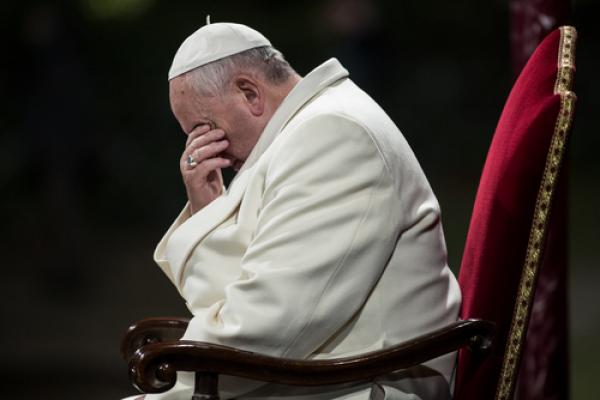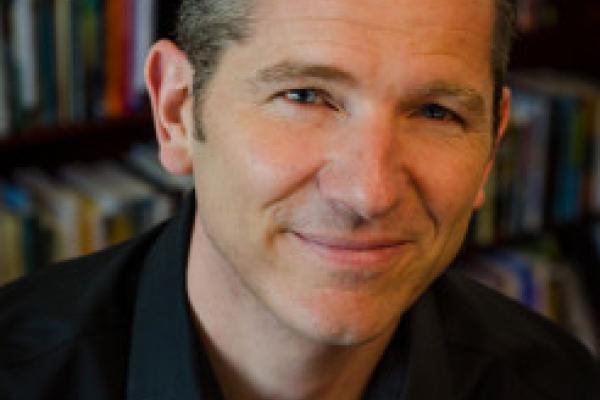WASHINGTON — Trying yet again with new voices, more than 250 evangelical pastors came to Capitol Hill on Tuesday to push for immigration reform.
“I didn’t want people to think this was only a Hispanic issue,” said Eugene Cho, pastor of Quest Church in Seattle, at a news conference before meeting with dozens of mostly Republican members of Congress. “This is impacting a lot of people, including Asian-Americans.”
Cho, who is of Korean descent, was among the new faces demonstrating support for immigration reform across racial and ethnic groups and denominations. He pointed out that one out of five Korean-Americans are undocumented.
The latest dust-up about the unscripted words of Pope Francis came this week when he tweeted, in Latin, “Inequality is the root of social evil.” Conservative Catholics had their underwear in a bundle, nervously tweeting away about the dangers of addressing complex issues on Twitter, and warning about thinking that “redistribution” would solve global inequities. Some feared this was giving Thomas Piketty’s new popular book, Capital in the Twenty-First Century, more press. Liberal Catholics were delightfully surprised, once again, and argued that the pope was doing nothing more than putting Catholic social teaching into a tweet.
Inequality is the root of social evil.
— Pope Francis (@Pontifex) April 28, 2014But this latest interchange, happening of course between Catholics in the global “North,” misses the real point.
As part of yesterday's announcement of new initiatives to combat sexual assault on college campuses, the administration released this public service announcement, joining forces with leading actors Benicio Del Toro, Dule Hill, Steve Carell, Daniel Craig, and Seth Meyers.
I attended a funeral last week and was struck by something that happened at communion.
The church was packed for a loving man who had touched many lives with his kindness. People from varied backgrounds and faiths came to celebrate his life and support his family. The eulogy noted that he never turned anyone away.
At communion time, several young adults from a different denomination got in line. When the first young man got to the priest, he received a question instead of a communion wafer. The priest said something to him. The young man looked surprised and shook his head. The priest traced a cross on his forehead and sent him away breadless.
On a day of shared grief, the young man had given the wrong answer to the age-old question: Are you one of us?
Donald Sterling, eccentric billionaire and owner – at least for the moment – of the Los Angeles Clippers basketball team, learned firsthand the weight of his own words on Tuesday. After allegedly being recorded making numerous racist remarks about African-Americans (both on his team and otherwise), the National Basketball Association handed him a lifetime suspension from association with his own team, along with a $2.5 million fine.
Though Sterling’s comments were highly inflammatory and distasteful, the NBA’s swift and severe consequences helps contain the damage, keeping the poison from infecting the league’s reputation any more than it already has. And good riddance to such attitudes, as they should find no audience in any public forum, let alone in a sport where a majority of the players are black.
Sterling’s consequence is not why I feel pity for him. He got what he deserved, and the stigma that goes with such shunning likely will weigh on his future business ventures. What saddens me for him is the sense I have of him as an individual, having read extensively about him online, and having listened to the audiotapes attributed to him.
Pope Francis and his council of eight cardinals are unlikely to complete a radical shakeup of the Holy See’s administration, or Curia, before 2015, the Vatican said Tuesday.
Francis joined the council’s discussions in between events on an intense appointment schedule that included an audience with King Juan Carlos of Spain after the historic double canonizations of Popes John Paul II and John XXIII on Sunday.
Despite progress in defeating extreme global poverty, most Americans see no end in sight, according to a survey sponsored by Compassion International.
Christians who attend church at least monthly and consider religion very important in their life overwhelmingly (96 percent) expressed concern about the world’s poorest people. But they were skeptical that global poverty could be ended in the next 25 years. Only 41 percent of the group said it was possible.
And yet Scott Todd of Compassion International, the Christian nonprofit agency that sponsors 1.5 million children abroad, remains upbeat. He sees hope in the numbers of “practicing Christians” who express concern about poverty and a willingness to do more.




![Cardinal George Pell in Rome, 2007. Photo courtesy of Gavin Scott [Public domain], from Wikimedia Commons.](https://sojo.net/files/styles/large_rectangle_crop/public/blog/Cardinal_George_Pell.jpg)
